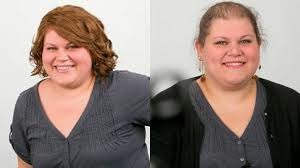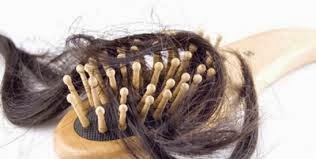Postpartum alopecia, also known as hair loss after pregnancy, is an ailment afflicting many new mothers once they have delivered their child. The hair loss that occurs is generally a result of reduced levels of estrogen throughout her body. While she was pregnant her estrogen levels were at their highest peak which led to an increase of excess body hair.
When she had given birth, her levels of estrogen began to drop which naturally increases the level of the male hormone testosterone, in her body. While it is thought that only men produce testosterone in their testes, women also develop normal testosterone hormone levels amounts in their ovaries. As her levels of testosterone heighten, it begins to bind with 5-alpha reductase which produces DHT, or dihydrotestosterone.
With higher levels of dihydrotestosterone in her body, hair loss after pregnancy is a natural occurrence. The DHT while traveling to the bloodstream begins to bind with follicles and hair strands on her scalp. Once DHT is present in the hair follicle it immediately stops the production of hair, causing the follicle to go dormant, and in time the strand of hair falls out. The natural process of immediately starting another strand of hair is now diminished as the follicle remains dormant.
While this is typically common for new hairs to form after the old hairs have fallen out, DHT stops this process and you begin to develop thinning or balding areas on your scalp. While hair loss after pregnancy is a common occurrence, it can be reversed quite easily.
You simply need to find a way to elevate your estrogen levels back to the correct level. The sooner this happens, the sooner the production of dihydrotestosterone (DHT) will stop.
One of the easiest ways of restoring your estrogen levels back to their correct amounts is to take all-natural herbal supplements designed specifically for hair growth. Many of the supplements for women include Biotin, Magnesium, Vitamin B6, and Horsetail Silica. Beginning a daily routine of taking these all-natural organic supplements, as directed, can effectively start hair rejuvenation on the thinning and balding areas of your scalp.
Working to rectify your hair loss after pregnancy sometimes requires altering your diet to a more natural healthy balance. Eating correctly and nutritionally can improve your overall general health which will naturally restore your estrogen levels to their correct amounts. Using a high-quality hair loss shampoo specifically formulated for women's hair loss is another way of restoring and rejuvenating hair re-growth.
Most hair loss after pregnancy is reversible with just a proper routine of eating properly, using the right shampoo, and taking your all-natural herbal supplements each day. If it is working, you should begin to notice positive results of hair growth in the Bolding and thinning areas on your scalp, within as little as four months.
Are you losing hair or want to avoid hair loss?
CLICK HERE to get your bottle of Provillus all-natural hair growth supplement for women and men while supplies last.
Provillus Hair Loss Treatment for Men and Women is FDA Approved and has been consistently rated #1 by consumers for years!
Article Source: http://EzineArticles.com/?expert=Michael_D._Phillips

.jpg)















.jpg)


.jpg)
